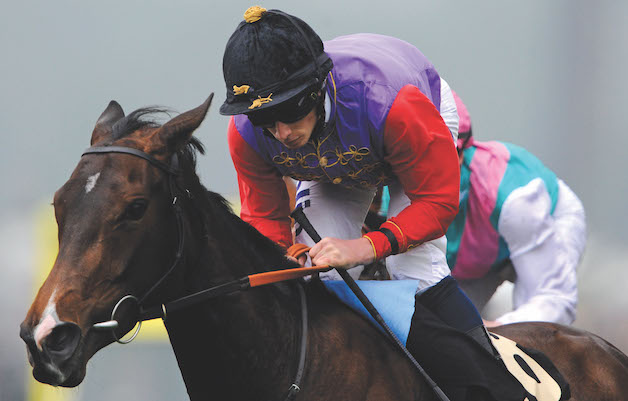Bookmaker Fitzdares takes a look at this highlight of the Flat season, from how it all began to the biggest stars (both human and equine) who have graced its stage
Royal Ascot is the crown in the Flat racing season, drawing the biggest names to the Berkshire track in June each summer. Fitzdares delves into its history and remembers the biggest winners.
Take a look at Fitzdares take on the Guineas and the Cheltenham Festival.
SPORTING WAGERS: ROYAL ASCOT
Ascot plays host to the highlight of the Flat season, staging Britain’s most valuable five days of unparalleled equine brilliance – The Royal Meeting. The eight Group 1s, coupled with the cool £6m in prize money across the five days, means that Royal Ascot consistently draws some of the world’s biggest names to the track.
It all started in 1711, when an increasingly ill Queen Anne was travelling towards Windsor in her carriage. An avid racing fan, she spotted a clearing in the forest and demanded that it be bought for the purpose of racing horses. There began Ascot Racecourse.
The first event at the track was called Her Majesty’s Plate and took place on 11 August that year. It was worth 100 guineas to the winner and owners could enter any horse over the age of six, as long as they carried the weight of 12st.
Seven runners took part across three heats, each of which were roughly four miles long, akin to the Grand National but without fences. These days, the longest race is the prestigious Ascot Gold Cup, at two and a half miles.
Queen Anne died in 1714 but her legacy lives on. HM Queen Elizabeth II has attended Royal Ascot every year since her coronation, apart from last year.
Far from being just a spectator, her famous purple, red and gold silks have been carried to victory on 23 occasions. The most famous moment was Estimate’s victory in the 2013 Gold Cup (pictured), marking the first time a reigning monarch has won the flagship race in the meeting’s history.
These days, nothing illustrates this close affiliation more than the Royal Procession. The 2pm daily event marks the arrival of HM The Queen and the Royal Party in horse-drawn landaus, which parade along the track in front of the thousands of racegoers.
Every year Royal Ascot proves a betting frenzy, with plenty of punters leaving the bookies’ sending out distress signals for all the wrong reasons.
In 2019, we saw the all-time record winning Royal Ascot jockey, Frankie Dettori, land the first four on the card on Ladies’ Day, including guiding three-time Gold Cup winner Stradivarius home. As Dettori hit the two-furlong pole clear of the field on 7-2 shot Turgenev, minds automatically cast back to the ‘Magnificent Seven’ of 1996, when the Italian rode all seven horses to victory, costing the bookies more than £30m.
Fortunately for us that day, despite his prowess and skill, Dettori’s mount faded in the closing stages, sparing an absolute hiding for Fitzdares. Despite passing half a century, Dettori will once again head to Ascot seeking to add to his jaw-dropping tally of 73 Royal Ascot winners, and he will also attempt to better Ryan Moore’s record tally of nine in one year. His best bet once again is Stradivarius, who will likely attempt to emulate Aidan O’Brien’s Yeats by winning four Gold Cups.
Royal Ascot has played host to some of the biggest stars in flat-racing, none more so than Frankel, trained by the late, great Sir Henry Cecil. In 2012, Frankel won his 11th race on his 11th start by 11 lengths. At odds of 1/10, he was as close to a sure thing as you can get at Royal Ascot.
As for Sir Henry, he was, until recently, the all-time champion trainer at the Royal Meeting with 75 winners. However, he has since been passed by another knight of the realm, Sir Michael Stoute, who sits on 81. One suspects that it will be Aidan O’Brien who ends up top of the pile within a few years. He is currently just one behind Sir Henry Cecil on 74, with plenty of furlongs in the tank.
Despite the successes of the top trainers and jockeys, the meeting does not just favour the short-priced ‘good thing’. Nando Parrado made history when landing last year’s two-year-old Coventry Stakes for Clive Cox, becoming the biggest-priced winner in Royal Ascot history at 150-1. Fitzdares laid just a single bet on the horse. This year will present another opportunity across the five days and 36 races for one lucky person to find that big-priced winner. Or, as is more likely, for everyone to back Stradivarius in his quest for history.
By Fitzdares, Racing Bookmaker of the Year (fitzdares.com)





